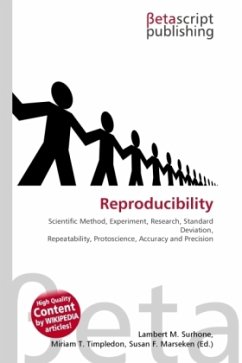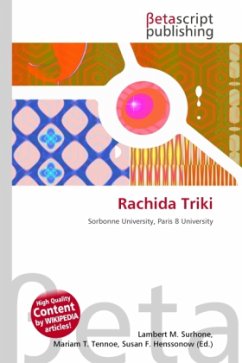
Tabula Rasa
Versandkostenfrei!
Versandfertig in 6-10 Tagen
23,99 €
inkl. MwSt.

PAYBACK Punkte
12 °P sammeln!
Please note that the content of this book primarily consists of articles available from Wikipedia or other free sources online. Tabula rasa (Latin: blank slate) refers to the epistemological thesis that individuals are born without built-in mental content and that their knowledge comes from experience and perception. Generally proponents of the tabula rasa thesis favour the "nurture" side of the nature versus nurture debate, when it comes to aspects of one''s personality, social and emotional behaviour and intelligence. In Western philosophy, traces of the idea that came to be called the tabul...
Please note that the content of this book primarily consists of articles available from Wikipedia or other free sources online. Tabula rasa (Latin: blank slate) refers to the epistemological thesis that individuals are born without built-in mental content and that their knowledge comes from experience and perception. Generally proponents of the tabula rasa thesis favour the "nurture" side of the nature versus nurture debate, when it comes to aspects of one''s personality, social and emotional behaviour and intelligence. In Western philosophy, traces of the idea that came to be called the tabula rasa appear as early as the writings of Aristotle. Aristotle writes of the unscribed tablet in what is probably the first textbook of psychology in the Western canon, his treatise (De Anima or On the Soul). However, besides some arguments by the Stoics and Peripatetics, the notion of the mind as a blank slate went much unnoticed for more than 1,000 years.












